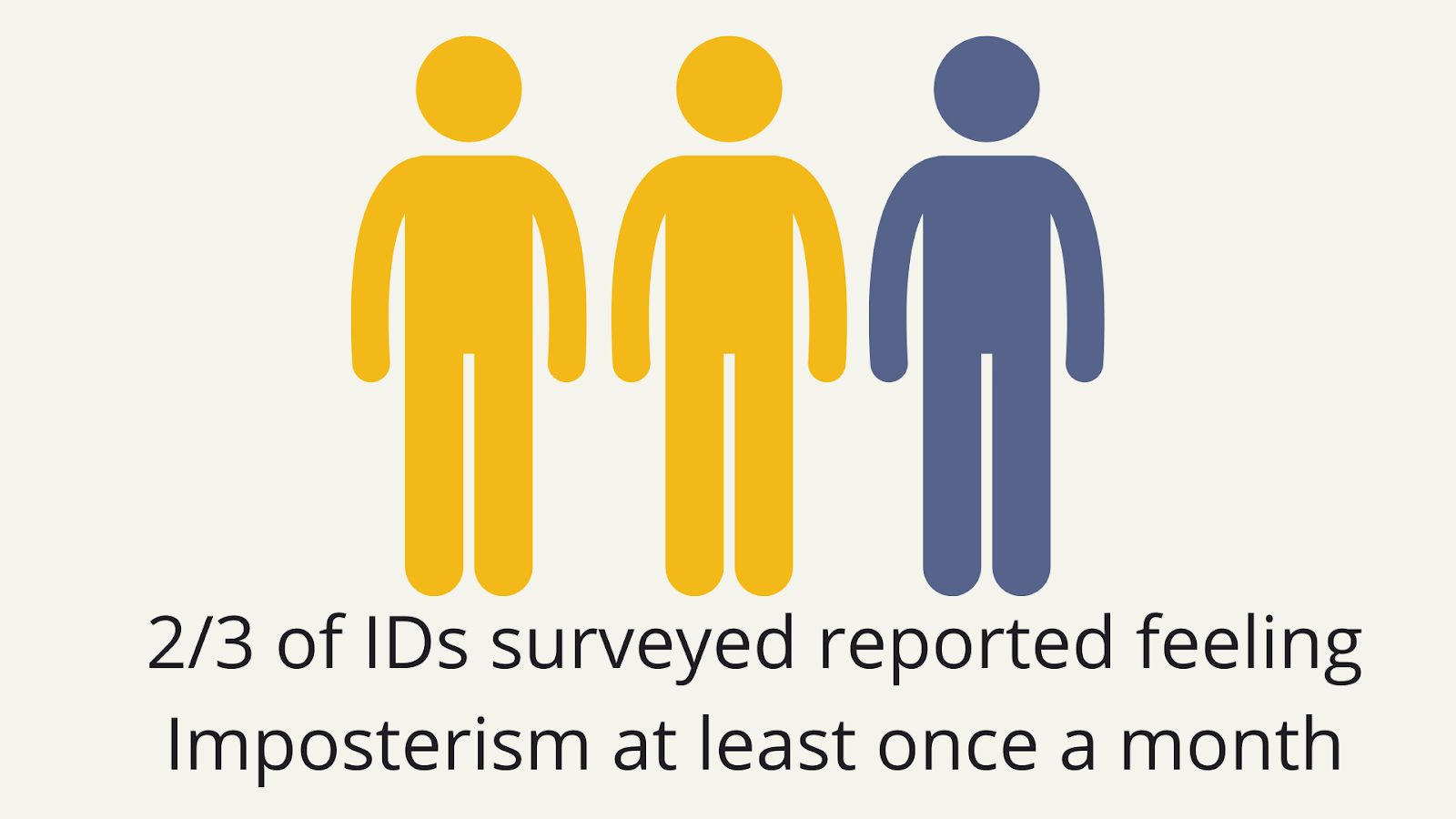Do You Feel Like an Imposter? You're In Good Company
Aug 27, 2020
“I only got the job because I got lucky.”
“Will they find out I don’t know what I am doing?”
Do any of these sound familiar? You may be dealing with imposterism. And you are in good company.
If you aren’t sure, take this Imposterism self-assessment created by Pauline Rose Clance.
Imposterism. Imposter Syndrome. Imposter Phenomenon. Imposter Experience.
These terms describe how high-achieving people fail to recognize their success and/or accomplishments and have persistent self-doubt and fear of being exposed as a fraud. They struggle with attributing their performance to their competence and often attribute success to luck or other outside factors.

No matter what you call it, imposterism is real and present in the business world. It is not a disease or an abnormality, but can have a harmful impact on job performance and satisfaction, and eventually cause burnout.
Prevalence, Predictors, and Treatment of Impostor Syndrome: a Systematic Review
As someone who is relatively new to the world of Instructional Design, I feel imposterism quite often, especially when interviewing for a new job. It is difficult to talk about my skills and accomplishments in an interview without feeling like a complete fraud. With 15 years experience in education, my confidence should be higher.
I decided to find out how many others felt the same. So I conducted an anonymous, informal survey on LinkedIn and Facebook. I asked 226 Instructional Designers about their experience with imposterism. The results proved that imposterism is alive and running rampant in the world of ID.

The population of the survey varied and included most sectors of instructional design. I am not confident that the percentages here are representative of the universal population of instructional designers in the workplace, but instead reflect the respondents to the survey itself.
While the time the participants worked as an ID may vary, the feelings of imposterism were widespread across the population. If someone reported not currently feeling imposterism, they stated that they had felt it at some point in their career.

Where does Imposterism stem from?
Elizabeth Cox in her TED-Ed talk says that people who are highly skilled or accomplished tend to think that others are just as skilled, which can grow into a feeling that they don’t deserve accolades over others. Hence the presence of imposterism.



For full survey results click here
Elizabeth Cox also discusses the term “pluralistic ignorance” which says that we each doubt ourselves, but we feel like we are the only ones who feel that way. This mainly happens because no one else voices their doubt.
After viewing the results of my survey, it is clear that instructional designers generally feel a sense of imposterism at some point in their career.. In fact, imposterism is seen in all walks of life and has been present for decades, if not centuries. Albert Einstein, Maya Angelou, and Meryl Streep are just a few well-known success stories that have been vocal about their experience of feeling like an imposter.

So, you feel like an imposter. What’s next?
Talk about it! After a simple search, I found five support groups for imposterism on LinkedIn alone! Obviously there are many other people who feel the same and it seems like the best way to help combat these feelings is to share them. But most of all, just know that you are not alone. Many of the best have felt feelings of imposterism!
Download some inspiration from fellow IDs who have dealt with imposterism here. Post them in prominent places in your home or at work to battle feelings of imposterism.
For help learning what you need to know and building a portfolio see these blog posts:
Becoming an Instructional Designer: Software Skills Needed to Be Successful at Instructional Design
Becoming an Instructional Designer: How I Completed My Portfolio in 45 Days
Getting Into Instructional Design: Where Do I Start?
Written By: Kristi Oliva
Connect with her on LinkedIn
Kristi is a teacher turned Instructional Designer and Curriculum Developer. She is passionate about making innovative and engaging learning solutions. She has a Masters in Higher Education-Instructional Design and Technology and a Certificate in Corporate Instructional Design and Online Learning from IDOL courses Academy.
Stay connected with news and updates!
Join our mailing list to receive the latest news and updates from our team.
Don't worry, your information will not be shared.
We hate SPAM. We will never sell your information, for any reason.


